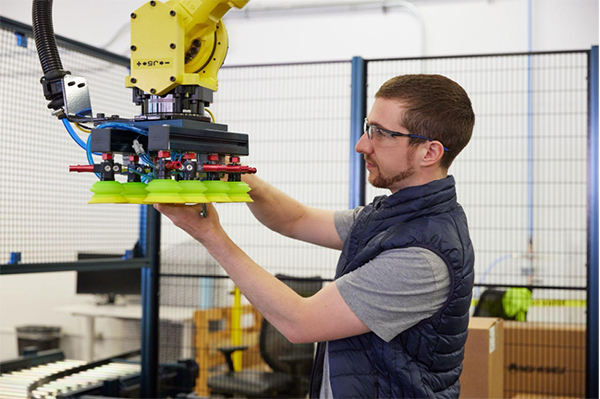Year ahead includes fast delivery for a competitive edge; DIY automation for small manufacturers; AI integration for efficiency optimization.
As we enter 2024, the landscape of industrial automation is undergoing a transformative evolution, marked by several key trends that promise to reshape the industry. Among these are speed to automation, the rise of DIY industrial automation and the integration of Artificial Intelligence (AI). All emerging as pivotal factors that will significantly influence the future of manufacturing.
In 2024, speed will take center stage, as manufacturers increasingly recognize the urgency of adopting automation technology. According to the Institute for Supply Management, the demand for automation has recently lengthened lead times to the longest levels since the ’80s. Industries, particularly those with shorter product lifecycles, recognize the critical importance of speed, spanning from design to operation, to maintain a competitive edge.
Traditional automation technologies often require a lengthy process, spanning over a year, due to the intricate nature of the technology and long lead times from multiple vendors. However, recent advancements, such as collaborative robots (cobots) and the Manufacturing Automation Platform (MAP), significantly reduce the time to automate. MAP integrates engineering software and modular hardware in a unified digital environment, enabling manufacturers to transition from design to operation within days or weeks rather than months or years. This acceleration promises to enhance production efficiency, productivity and return on investment, making speed a key differentiator in 2024.

“Do-it-yourself” (DIY) automation is characterized by the independent design and implementation of industrial automation systems. This trend is quickly gaining momentum, with recent innovations making automation more accessible, particularly for small businesses. These businesses were previously unable to automate their operations, hindered by its complexity and high cost, but are now becoming the primary adopters of DIY automation through MAP.
Manufacturers with fewer than 200 employees are increasingly embracing automated solutions at higher rates but are also realizing the value of flexibility and customization. Modular hardware and intuitive software enable these businesses to create and repurpose multi-mission solutions, adapting to shifts in customer demand. The collaboration of DIY automation with Advanced Manufacturing Teams is also creating new opportunities for forward-thinking system integrators, leading to an evolution of the traditional business model towards vertically integrated automation platforms.
In 2024, the integration of AI is set to revolutionize the industrial automation industry within three distinct categories. The “Industrial Copilot” concept enhances efficiency through human-machine collaboration, resembling the ChatGPT of programming. Autonomous robots, driven by mission-based automation, reduce dependency on skilled programmers, allowing robots to adapt to their environment and complete complex missions. The third category, machine learning, takes AI a step further by enabling robots to learn and improve from experience.
The synergy between autonomous robots and machine learning is poised to be a game-changer in 2024, allowing measured data points from the factory floor to autonomously optimize manufacturing processes for superior efficiency, reliability and quality. This convergence has the potential to replace traditional domain knowledge expertise required for successful automation, opening new possibilities for the future of industrial manufacturing.
As we navigate through 2024, the industrial automation landscape will undergo a rapid transformation driven by speed, DIY industrial automation and the integration of AI. Manufacturers embracing these trends will be poised to gain a competitive edge, delivering efficiency, flexibility and innovation in an industry that demands constant evolution. The convergence of these trends paints a promising picture for the future of industrial automation.

About the Author:
Etienne Lacroix is a business leader and entrepreneur with deep experience building and turning around engineering-intensive businesses. He’s the founder and CEO of Vention.
Before Vention, he spent five years at McKinsey & Company as an associate partner with the Operations and Product Development Practices. In this role, he led enterprise-wide strategic, operational and turnaround programs at global industrial and high-tech companies. Before joining McKinsey, he held various positions in product management, product development and supply chain at General Electric as part of the Technical Leadership Program.
Etienne holds an MBA from Harvard Business School and a bachelor’s degree in mechanical engineering from the École de Technologie Supérieure.
Scott Ellyson, CEO of East West Manufacturing, brings decades of global manufacturing and supply chain leadership to the conversation. In this episode, he shares practical insights on scaling operations, navigating complexity, and building resilient manufacturing networks in an increasingly connected world.